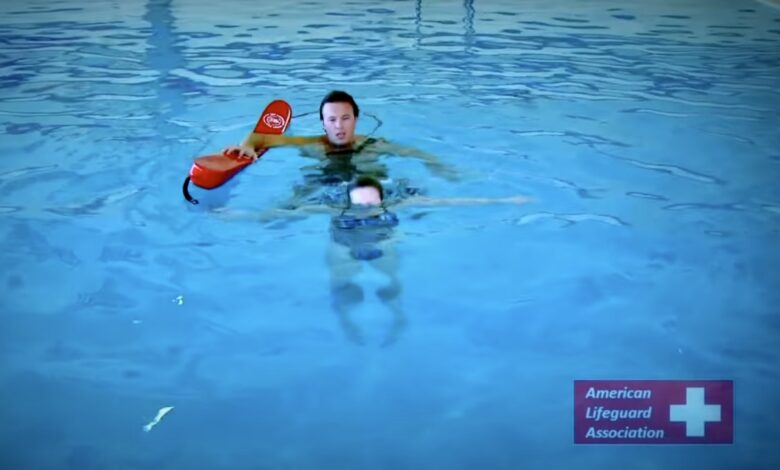How Do Lifeguard Courses Enhance Your First Aid Knowledge?

Lifeguard courses offer more than just the ability to rescue swimmers in distress. They provide comprehensive training in first aid, enhancing your knowledge and skills to handle emergencies effectively. This article explores how lifeguard courses, including in-person and online options, equip participants with essential first aid competencies, benefiting both their personal and professional lives.
Understanding the Scope of Lifeguard Courses
Lifeguard courses, offered by reputable organizations like the American Lifeguard Association, cover a wide range of topics essential for ensuring water safety. While the primary focus is on rescue techniques, these courses also emphasize first aid and CPR, making participants well-rounded responders in emergency situations.
Key Components of First Aid Training
Basic First Aid Skills
Lifeguard courses provide training in basic first aid skills, including:
- Wound care: Proper cleaning and bandaging of cuts and abrasions.
- Burn treatment: Assessing and treating different types of burns.
- Fracture management: Immobilizing broken bones and sprains.
These skills are crucial for lifeguards, as they often encounter injuries at pools and beaches.
CPR and AED Certification
Cardiopulmonary resuscitation (CPR) and automated external defibrillator (AED) use are vital components of lifeguard courses. Participants learn:
- CPR techniques: Performing chest compressions and rescue breaths.
- AED usage: Operating the device to restore normal heart rhythm during cardiac emergencies.
Lifeguards equipped with CPR and AED skills can significantly improve survival rates in cases of cardiac arrest.
Advanced First Aid Knowledge
Recognizing and Responding to Medical Emergencies
Lifeguard courses teach participants to recognize and respond to various medical emergencies, including:
- Heat-related illnesses: Identifying and treating heat exhaustion and heatstroke.
- Hypothermia: Understanding symptoms and providing appropriate care.
- Asthma attacks and allergic reactions: Administering medications like inhalers and EpiPens.
This advanced knowledge enables lifeguards to act swiftly and effectively, minimizing the severity of medical emergencies.
Scenario-Based Training
Hands-on, scenario-based training is a key element of lifeguard courses. Participants engage in simulated emergency situations, allowing them to:
- Apply first aid skills in real-life contexts: Practice enhances confidence and competence.
- Work under pressure: Training under stress conditions prepares lifeguards for high-pressure environments.
These exercises foster quick decision-making and reinforce the practical application of first aid knowledge.
Benefits of Enhanced First Aid Knowledge
Increased Confidence
Completing lifeguard courses boosts confidence in handling emergencies. Participants feel prepared to:
- Take charge during incidents: Confident responders are more likely to remain calm and focused.
- Assist beyond the pool or beach: First aid skills are transferable to various settings, making participants valuable assets in any emergency.
Professional Opportunities
Enhanced first aid knowledge opens up numerous career opportunities for lifeguards:
- Aquatic facility management: Knowledgeable lifeguards are prime candidates for supervisory roles.
- Emergency response teams: First aid expertise is essential for positions in emergency medical services.
- Teaching and training: Certified lifeguards can become instructors, sharing their skills with new lifeguards.
The American Lifeguard Association offers pathways for career advancement through additional certifications and training programs.
Lifeguard Courses Near Me
For those interested in enhancing their first aid knowledge, finding lifeguard courses nearby is essential. Local courses provide the advantage of hands-on training in familiar environments. The American Lifeguard Association offers:
- In-person courses: Traditional classes that provide direct interaction with instructors and peers.
- Hybrid options: A combination of online coursework and in-person skill assessments.
Searching for “lifeguard courses near me” can help prospective participants find convenient options that suit their needs.
Lifeguard Online Courses
For individuals with busy schedules, lifeguard online courses offer flexibility without sacrificing quality. These courses provide:
- Self-paced learning: Participants can complete coursework at their convenience.
- Interactive modules: Engaging content that covers first aid, CPR, and rescue techniques.
- Virtual simulations: Online platforms simulate real-life scenarios, enhancing practical skills.
While online courses may require an in-person assessment for certification, they offer a convenient alternative for acquiring first aid knowledge.
The Role of the American Lifeguard Association
The American Lifeguard Association plays a pivotal role in providing high-quality lifeguard training. Their courses emphasize first aid and CPR, ensuring that participants are well-prepared for emergencies. The organization:
- Sets industry standards: Courses align with national safety guidelines.
- Offers recertification: Lifeguards can refresh their skills and knowledge regularly.
- Promotes continuous learning: Advanced courses are available for those seeking further expertise.
By choosing courses from the American Lifeguard Association, participants receive comprehensive training that meets the highest standards. Read more informative article click here.
Final Opinion
Lifeguard courses significantly enhance first aid knowledge, equipping individuals with essential skills to respond to emergencies effectively. From basic wound care to advanced CPR techniques, these courses offer a comprehensive learning experience that benefits both personal and professional growth. By participating in lifeguard courses offered by reputable organizations like the American Lifeguard Association, individuals can become confident, capable responders, ready to handle any situation that comes their way.



